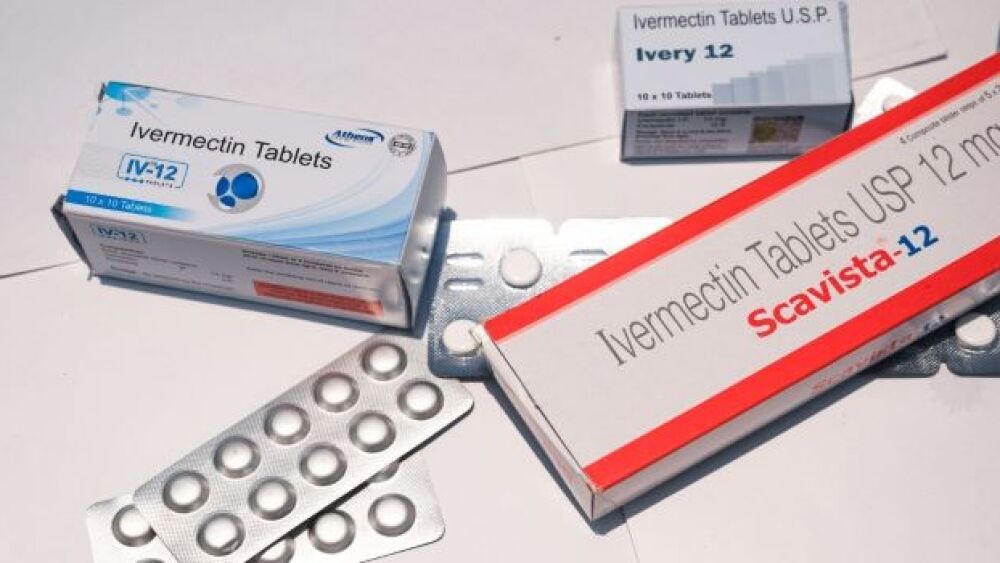“You are not a horse. You are not a cow. Seriously, y’all. Stop it.” This is the FDA’s recently tweeted advice to Americans seeking out alternative, unapproved treatments for COVID-19.
Soumyabrata Roy/NurPhoto via Getty Images
“You are not a horse. You are not a cow. Seriously, y’all. Stop it.” This is the Food and Drug Administration’s (FDA) recently tweeted advice to Americans seeking out alternative, unapproved treatments for COVID-19.
The comment is aimed mainly at Mississippi residents as a follow-up to the state’s official Health Network Alert issued Friday. The Magnolia State has experienced increasing calls to its poison control line, with 70% of the calls related to the ingestion of the livestock formulation of anti-parasitic drug ivermectin.
While ivermectin is FDA-approved to treat and prevent parasite infections, the drug commonly found at most local feed stores is highly concentrated for large animals such as horses and cows. In that type of formulation, it can be highly toxic to humans.
The FDA released information on using ivermectin to treat COVID-19 back in March. The highlights were: it’s not approved for treating or preventing COVID-19, it’s not anti-viral, taking large doses can cause serious harm, and never, ever use medications intended for animals on yourself.
Yet, internal data from the CDC is estimating a 19-fold increase in the distribution of the anti-parasitic drug just in the first week of August.
Mississippi residents aren’t the only ones using the drug. It’s prevalent in Latin America as well. The interest all started with data from a preprint study that reported ivermectin significantly reduced COVID-19 deaths.
However, glaring flaws have been found in the study, including plagiarism, phrases used in the study were identical to other published works, and data manipulation, such as duplicate patients and patients whose records show they died before the study start date.
Research Square withdrew the paper because of “ethical concerns,” but the ripple effect had already begun. Many individuals around the world were convinced this drug was a miracle cure for the novel coronavirus.
Other studies regarding the effectiveness of ivermectin have been completed, but studies were small and outcomes unclear. More studies are enrolling now to investigate the potential use as a treatment for COVID-19.
While 85% of the Mississippi poison control callers experienced mild symptoms, one person was hospitalized last Wednesday for ingesting the livestock formulation of ivermectin.
Mississippi State Health Officer Thomas Dobbs said, “I think some people are trying to use it as a preventative, which I think is really kind of crazy. So please don’t do that.”
Mississippi has experienced a surge in cases amidst the delta variant spread. The state reported 5,048 cases on Friday, with hospitalizations and death rates also on the rise.
The FDA has received reports of other states as well, including Louisiana, and said some have “required medical support and been hospitalized after self-medicating with ivermectin intended for horses.”
Symptoms of ivermectin toxicity include rash, nausea, vomiting, abdominal pain, neurological disorders, and potentially severe hepatitis that could require hospitalization.






